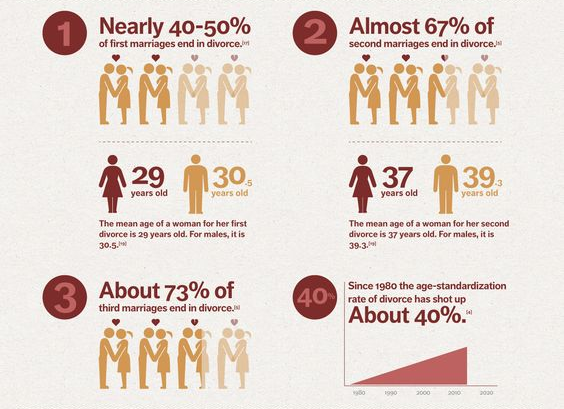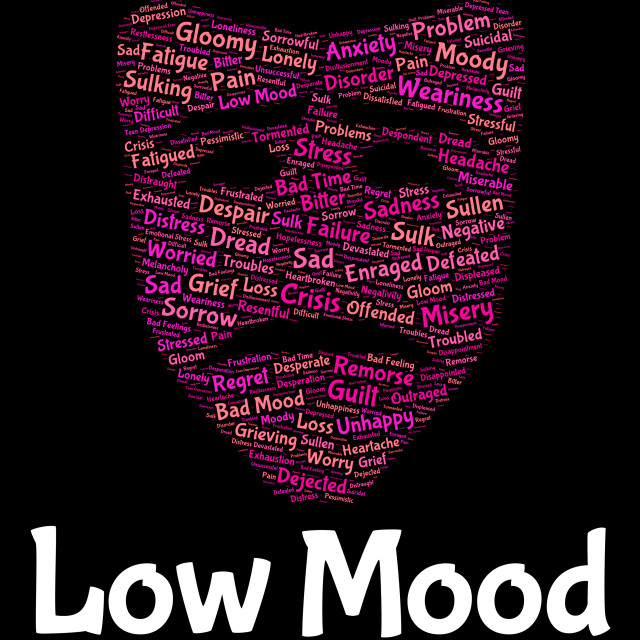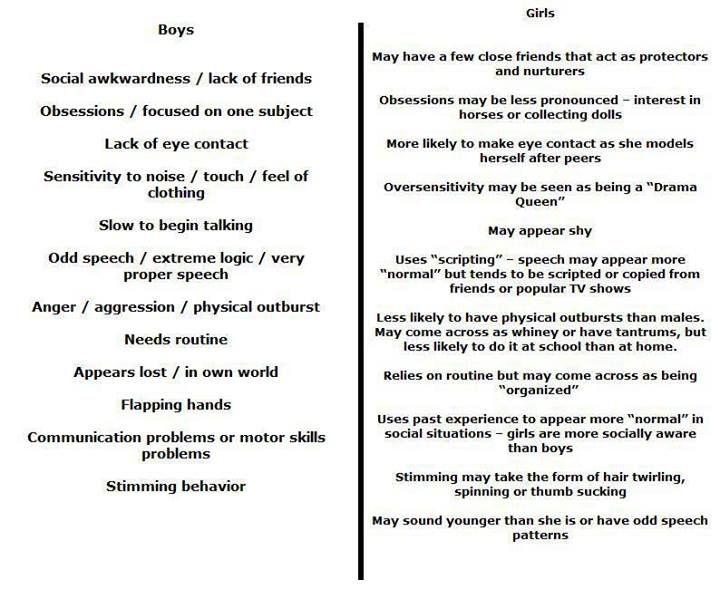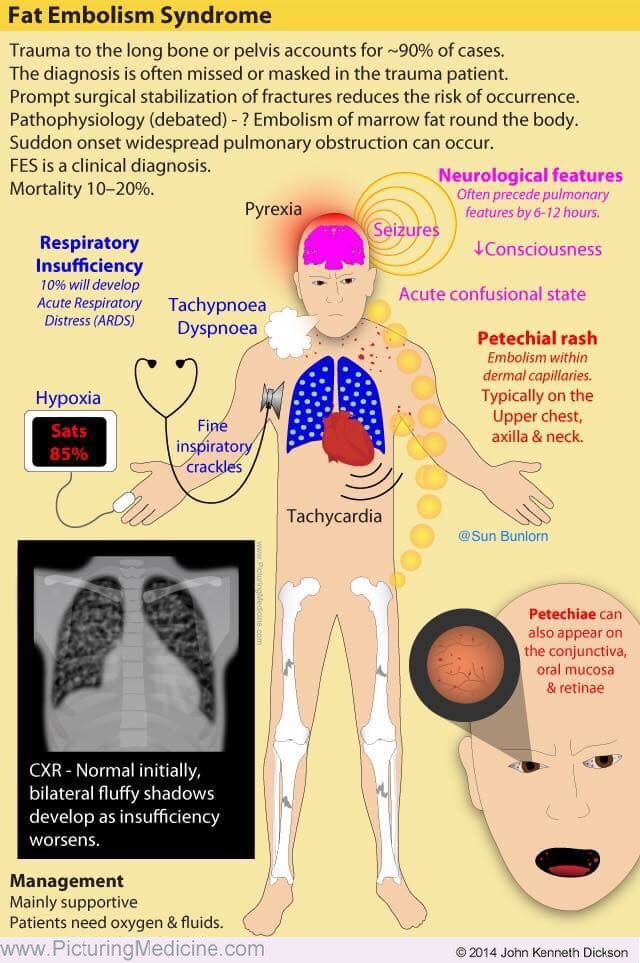Working at a job you hate
How To Survive A Job You Hate (But Can't Leave – Yet)
There were mornings when I had to pep-talk myself into getting out of bed.
There were commutes when I did an extra lap of the roundabout, just to delay my arrival at the office by ten more seconds.
Days of clock watching, wondering how it was possible that only four minutes had passed since I last glanced up.
Nights of lying awake, running circles in my head, desperately trying to think of a way out.
I planned and daydreamed endlessly of the moment when I'd put my things away at my desk and stand up from that chair for the very last time. But that moment was a long way off.
I was stuck, inert, in a torturous state of suspension.
I hated where I was, but I couldn't leave.
Sound familiar?
What do you do if you're not ready to make your shift, but the day-to-day grind is driving you up the wall?
Here are some strategies from real-life career changers on how they endured (and in some cases actually learned to enjoy) the jobs they weren't ready to leave.
1. Share the load
If I asked you what you hated about your work, I bet you'd be able to reel off a long list of things.
- You feel undervalued.
- You can't stand your boss.
- Your skills aren't being used properly.
- You're just a cog in a machine.
- The office politics are killing you.
But, underneath all of those explicit items on your list, there's something else going on, too.
You're being a big fat faker.
And you hate it.
You get up every day and force yourself into your commute. You walk into the office and you feel heavy and tired before you've even sat down. You have to push yourself to get anything done. And on top of all of that… you smile anyway, don't you?
You say a cheery "Hello!" to your colleagues. When your boss asks who'd like to take on that desperately boring project that you just know will be a train wreck before it's even started, you put your hand up, right?
Your whole day is a series of little lies. And that's not who you are.
And that's not who you are.
But you started doing it in small ways a long time ago: papering over the cracks. And as the cracks have slowly grown, so has the amount of time you're pasting a smile over the top of disinterest and frustration. It's been an insidious creep of inauthenticity, and it's eating you from the inside out.
This inauthenticity is at the core of most people's frustration with their work. It's what turns "I don't love my job" into "I cannot stand this life any longer".
Maybe you can't be entirely open about how you're feeling, all the time, but you can probably share the load with someone at work: an understanding colleague or a supportive boss.
Who could you share how you're feeling with? What would allow you to be authentic, find some relief and start creating solutions, even in a small way?
"I had a group of of people around me, and we used to moan about work all the time. That was just a part of day-to-day life.
"And then there was a team leader I worked with.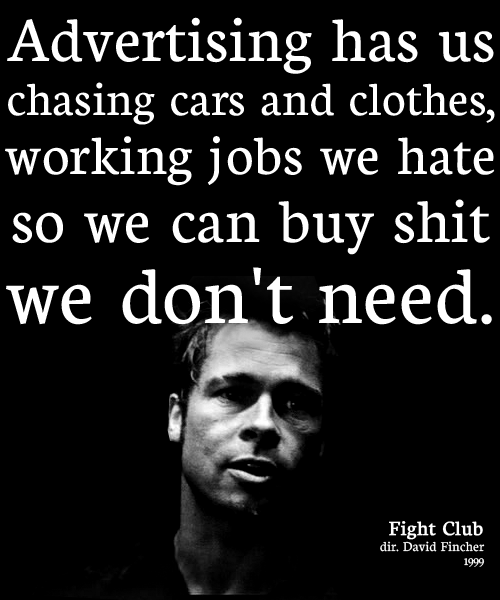 He was about the same age as me, but further ahead on the career ladder in the company. I decided to trust him and I confided in him about how I felt. And he said he was thinking about the same thing; he completely understood how I felt.
He was about the same age as me, but further ahead on the career ladder in the company. I decided to trust him and I confided in him about how I felt. And he said he was thinking about the same thing; he completely understood how I felt.
"I didn't expect that from him; it was very moving and reassuring, and it gave me the validation I needed to know that how I was feeling was OK." – Richard (founder of Careershifters)
2. Reduce your hours
One of the most important principles we teach at Careershifters is that new ideas and opportunities come from new experiences.
And when you're working full time, getting time and headspace to have those new experiences is a real stretch.
So, although it might feel like a pipe dream, asking to reduce your hours can be an incredibly effective way of accessing more time and energy without compromising your security.
This isn't an option for everyone, but it's well worth considering. Many people are gloriously surprised by the freedom and support they can get if they just gather the courage to ask.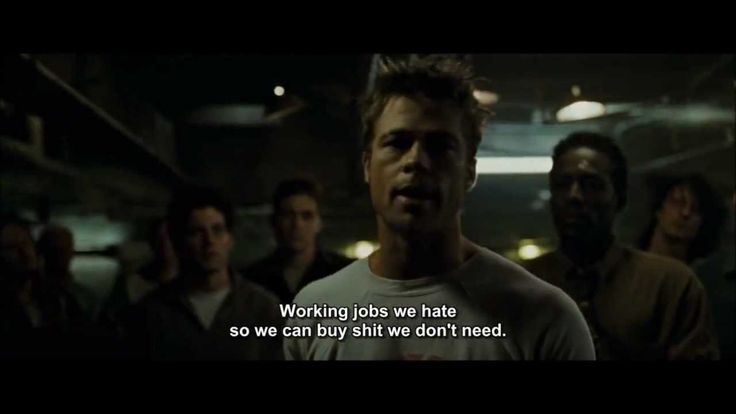
Maybe you'll get a no. Maybe it's uncomfortable. Maybe you're worried about the consequences.
But maybe you have more options than you think, especially if you start with a small reduction in hours.
And the impact can be incredible:
"Mainly it helped me unravel a large part of my identity from the job. My story when I met people then became: 'I work a few days a week at a corporate job, however, what I'm trying to do is this other, more interesting thing'.
"It's helped me gain perspective and to be less fearful, knowing I would survive if I left the job as I'm already OK with far less money. It's increased my physical and psychological energy, for sure. I have more space to pursue other things, and a feeling of already having one foot out of the door.
"It also meant that outside of the 9–5 office role I could mix with people who worked differently. For example, I started to learn Spanish, and in the course there happened to be a bunch of women who were all entrepreneurs.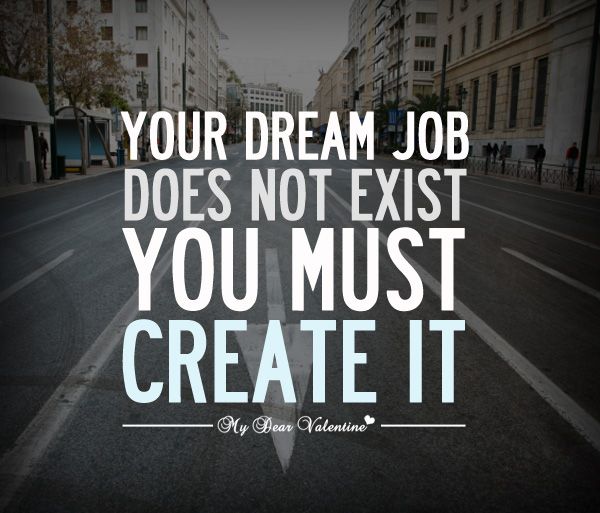
"Locked in an office all week, being too tired in the evenings or weekends to do much else, meant that I wasn't even mixing with anyone who wasn't doing the same corporate grind, getting no exposure to fresh ideas.
"I did the hours reduction in quick stages – half a day, then a full day, now my hours are in the 20s and I want to reduce them further soon." – Kirsty (Oct 2014 Career Change Launch Pad participant)
3. Zoom out
You've been working on this spreadsheet (or sitting in this meeting, or trying to make a sale to a nightmare prospect) for ever, and you just can't bring yourself to care any more.
The day-to-day reality of most jobs isn't deeply inspiring and exciting. There will always be tasks and things to do that feel like hard work.
But there's something bigger at play, too.
No matter how mundane your job might feel, your work is in service of something that matters.
And connecting your immediate task with that bigger 'something' can bring a little extra motivation and enjoyment to what you do.
Find a way to get connected with the 'why' of what you're working for.
Maybe sitting on the phone with a disgruntled client isn't your favourite thing to do. But once you remember that you have the power to turn someone's bad day into something to smile about, it's a lot easier to throw yourself into the conversation.
Or perhaps crunching the numbers for the last big project you worked on feels like a nightmare task. But when you think of the impact that the information could make on the number of people you could help next time around, it won't feel so worthless.
Develop your own way to remind yourself of your bigger 'why'.
"I work for a well-known tyre company. Making and selling tyres isn't a very inspiring or meaningful cause, and I talk a lot about how I want to find a career where my day-to-day job has a real impact on people.
"One day I had a call with a client who let me know how much my work was helping them, and I realised that I can make an impact on the world, even if it's just with the people I get to work with right now.
"I wrote that client's name on an index card and I keep it stuck to the corner of my computer screen. When things feel like they couldn't get any less inspiring, it's a great reminder that even the boring, tough stuff can be worthwhile." – Dean (customer service manager)
4. Choose your superpower
If you're feeling as though your skills are underused and undervalued, or as though your life has become a Groundhog-Day-esque circus of sameness, it's time to turn up the volume.
Pick something specific that you're interested in, and take it on as a challenge. Maybe the one part of your job you enjoy is designing and making pitches to potential clients.
Focus on it. Read everything you can find about public speaking and presentation skills. Take a free online course in your spare time. Do whatever you need to do to get really, really good at the part of your job you enjoy the most, and bring it into your day as much as you can.
No clear need for a presentation at this team meeting? Ask your boss if you can do one anyway.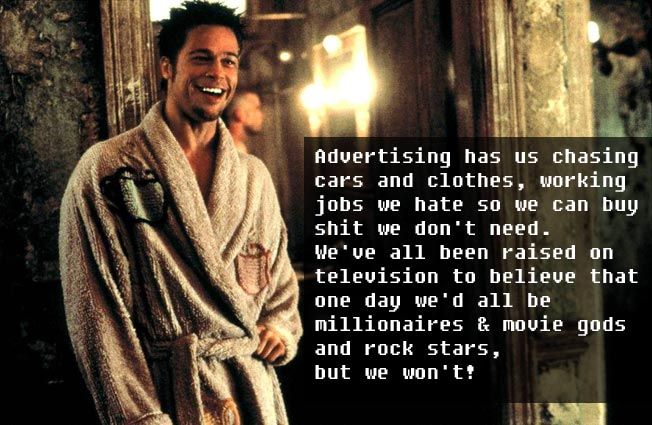 Find clients and potential partners you wouldn't normally pitch to, and pitch to them.
Find clients and potential partners you wouldn't normally pitch to, and pitch to them.
It feels amazing to grow and develop and be really, really excellent at something, and people will notice.
The better you get, the more likely you are to be asked to do more of it. And the more you do, the better you get.
Plus, when you're finally ready to make your shift into a new career, you'll have an extra string to your bow to impress potential new employers, business partners or clients.
"I had a think about what I was doing and realised there was one part of the job I actually really enjoyed: organising and promoting events and doing photography. So I started squashing in the parts I don't particularly enjoy (course marketing, admin, finance stuff), and realised that they didn't take me that much time if I worked really quickly.
"That then left me more time for the other stuff, so I decided to refresh our photo library and have been able to organise new photoshoots. I've also been more proactive on the events side by proposing new events to run with a colleague that I'd previously worked with.
I've also been more proactive on the events side by proposing new events to run with a colleague that I'd previously worked with.
"No-one has seemed to notice what I'm doing, and it makes the work day less of a pain." – Miranda (Feb 2015 Career Change Launch Pad participant)
5. Take on a secret side-project (at work)
What makes a work day feel good?
When you come home with a smile on your face, what was it that put that smile there?
Figure out what makes a difference to you, and turn it into a secret project to get more of it into every day.
Love making people happy? Set yourself a challenge to do three random acts of kindness every day. Find five minutes to help your colleague with her project when she looks like she's stressed out, and make sure you leave her laughing. Secretly put a bunch of flowers in the middle of the table in the meeting room. Have an impromptu dance party in the kitchen.
Feel like you're trapped behind your computer all the time, and missing human connection? Turn conversations into a game: how many new people can you meet at work today? Do you know the caretaker by name? What does that woman on the other side of the office actually do?
"It sounds mad, but making an effort to be extra nice to my colleagues really helped.
"Making someone a cup of tea, asking how their weekend went, helping someone out with a problem, etc.: all of that helped take the focus away from my awful job and my awful boss!" – Corinna (Feb 2016 Career Change Launch Pad participant)
6. Take on a secret side-project (at home)
Just because you're not able to leave your job now doesn't mean you can't start working on your shift right away.
And having a secret side-hustle can work wonders for your mood and motivation.
Whether it's something like our Career Change Launch Pad, starting your business, or simply learning a new skill, nothing feels quite as good as making progress on your shift.
Why?
Because half the despair of feeling stuck in a job you don't enjoy comes from feeling like there's no way out. You wouldn't know where to go, even if you did quit today. Or you have an idea of what you'd like to do, but you don't have the experience you need to be taken seriously.
By building up experience, clarity, and an escape plan, you're de-risking your situation.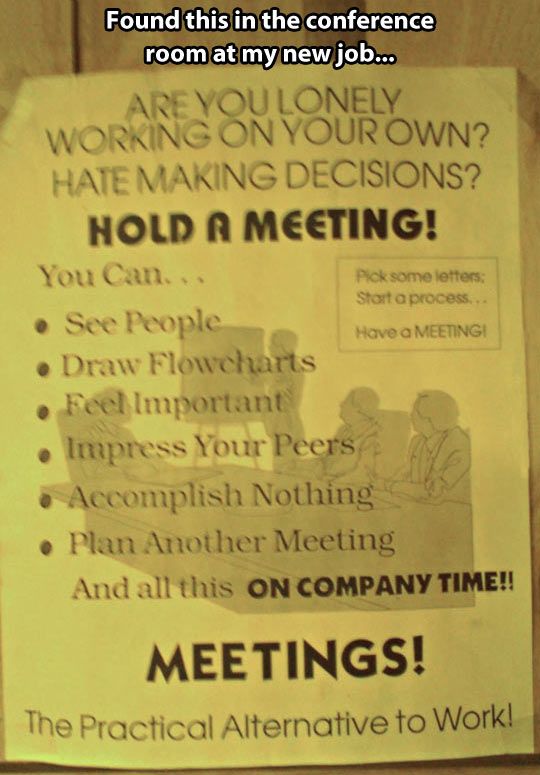 You're not going to make the mistake of a reactive shift. You're not going to find yourself stuck in the same place a year from now.
You're not going to make the mistake of a reactive shift. You're not going to find yourself stuck in the same place a year from now.
And the confidence and energy this can provide you with is priceless in your day-to-day.
Even if it's just an hour a week, choose something to go to work on and turn it into your secret project.
"I decided I was going to give myself six months to learn how to code. It wasn't my dream job, but I knew it was a useful skill, and something that could potentially give me a lot of freedom to travel and work on my own terms while I figured out my 'real' next steps. I signed up to two courses: one online and one in-person at a local adult learning centre.
"It was so much fun. In quiet moments at work or in boring meetings, instead of thinking about how terrible my job was, I was planning my next website or solving a programming problem in my head.
"Having something different and enjoyable to focus on made all the difference. " – Erica (operations manager, NHS)
" – Erica (operations manager, NHS)
7. Shift your focus
"What you focus on, grows."
It sounds like New Age, unrealistic hype, but it's worth paying attention to if you can't seem to escape the feeling that everything is doomed and there's no way out.
Here's the thing: the more convinced you are of the idea that your situation is awful, the more you'll find evidence to back it up.
"See? He's making another cup of coffee. Clearly everyone here is as disillusioned as me, and he can't be pulling his weight because he's always by the kettle."
"See? They're making me do all the name tags for the event. Menial work. They have no appreciation for my skills."
Your life becomes a day-to-day exercise in proving yourself right.
And this is what the inside of your head starts to sound like, all the time: self-righteous and hard done by, not because that's the kind of person you are, but because of where your gaze is fixed.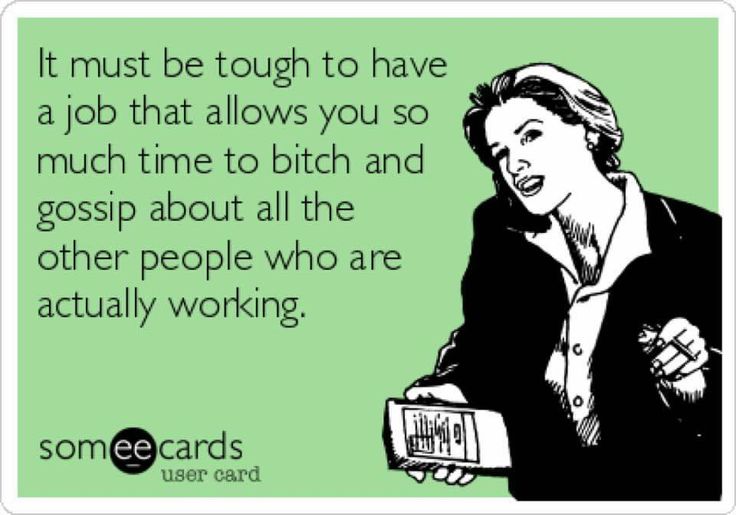 It's even worse if you allow that stuff to come out of your mouth.
It's even worse if you allow that stuff to come out of your mouth.
What you focus on, grows.
Maybe that colleague of yours is avoiding work by making 14 cups of coffee a day. They're procrastinating and hiding out, AND they could be exactly the person you can share how you're feeling with, becasue you know they'll understand.
Maybe you do have to print and cut up three hundred name tags this afternoon, AND you get to do it with a colleague you don't know that well. It's a boring task that doesn't use your best skills, AND it's a great chance to get to know someone new and give your giant brain a break.
However eye-rollingly Pollyanna it might sound, nothing is doomed and fundamentally awful. There's something to be celebrated in everything, if you look hard enough.
"For me, it really is a matter of focusing on the positive and being grateful for as much as possible.
"Is your job close to home, and thus your commute short? Be grateful! Do you work for a highly reputable firm that will look good on a CV regardless of your personal experiences there? Be grateful! Do you love your co-workers, but hate your boss? Be grateful – after all, you could be in a situation where you hate all of them! Ha!
"I know it sounds trite, but if you are truly 'stuck' there, you have to find a way to make the best of it. And I personally know of no better way to do that than to focus on the positive and on what you can control." – Cathy (programme manager)
And I personally know of no better way to do that than to focus on the positive and on what you can control." – Cathy (programme manager)
8. Take the lead
One of the uncomfortable truths that nobody likes to hear is also one of the most empowering things you can consider: nobody owes you anything.
Nobody's here to argue that it's not wonderful when your boss has your back and your team is working like a well-oiled machine, and there is always, always paper in the printer.
But it's not your boss's job to have your life work. And if the IT guy is always late, there's probably a reason why.
Waiting for someone else to fix things (while simultaneously being miserable because your life isn't how you want it to be) is not a useful course of action.
What could you take on to have things be better at work? How could you lead the charge towards a more fun working environment, or a more efficient email system, or a flexible working policy?
If you're feeling unfulfilled and unhappy in your career, mustering the motivation to take the lead on something probably isn't going to feel like the obvious and enjoyable thing to do.
But if it matters to you, then it's up to you to change it.
And if it matters to you, it probably matters to other people, too.
Think about the one thing that could make the biggest positive impact in your workday, and let your boss know you'd like to work on improving it.
It could be as simple as finding a way to share all the positive feedback you get from clients with the whole team, as soon as it comes in.
It might mean finally gathering the courage to negotiate a day of working from home, on an experimental basis.
Or it could be something bigger and more complex – something you'd need to re-structure your day to implement.
Whatever it is, step up to the plate. Find the people you'd need on your team. Take the reins.
"In my business development role I was tired of chasing after corporate accounts and doing things I didn't find fulfilling.
"However, when I took a step back, I thought about what was missing from my role and what I'd like to do more of, and considered ways to bring this into my role.
"I wanted to network with people whose work I found interesting and I wanted my work to have more social impact. So, I started networking with local third sector organisations and community groups and finding ways that we could collaborate with them to provide services that helped a different client group.
"Not only did I start enjoying my existing job much more, it also gave me the kind of experience I wanted to have on my CV. This was a total game changer when it came to looking for my next job, as it gave me clarity on what I really wanted and experiences that I could talk passionately about with potential employers." – Matt (June 2015 Career Change Launch Pad participant)
9. Fill your tank
Working in a job that doesn't excite you is draining. It takes energy to get yourself to work in the morning, to motivate yourself throughout the day, to work those extra hours on the task you've been dreading for weeks. And when you're coming home exhausted and empty at the end of the day, the thought of doing anything else can feel impossible.
But with all that energy going out every day, it's vital to find ways to get some energy coming back in.
Everyone has something that fills their tank.
It might be exercise, or art, or spending time with friends. It might be getting out into nature on a regular basis. There's something out there that leaves you feeling energised and refreshed, every time.
And even if the thought of making and taking time for it feels impossible and tiring, that 'something' can be your lifeline.
Exhaustion and frustration are signs that you're undernourished, physically and emotionally. And you need to feel nourished to make it through this in-between stage of a career change.
Assign time for yourself. Protect it fiercely. Do what you need to do to refill your tank.
"Monday and Thursday evenings are pure 'me' time.
"My husband takes the kids, and I go running in the park with a friend or shut myself away for an evening with my yoga and my books. I used to feel like I couldn't find the time or the energy to do anything outside of work, but since I've been doing this, everything's got easier.
I used to feel like I couldn't find the time or the energy to do anything outside of work, but since I've been doing this, everything's got easier.
"I have quiet time with myself inside my head to check in and think a little, and it's easier to get through the week knowing that I've got a treat on the way." – Diane (civil servant)
A little extra goes a long way
Not all of these strategies are going to be suitable (or even attractive) for you. And it's very unlikely you'll be able to put all of them into practice.
But choose one or two to play with over the next month. Experiment. Throw yourself into the process of exploring – what eases the stress and the boredom? Is it possible you could not just survive, but thrive at work, in this in-between career-change stage?
You matter. Your well-being matters. Your ability to feel strong and grounded and forward-facing as you move toward fulfilling work, matters.
Which of these strategies could you start using this week? Let me know in the comments below!
How to Cope When You Hate Your Job
There’s no way to sugarcoat it—you hate your job.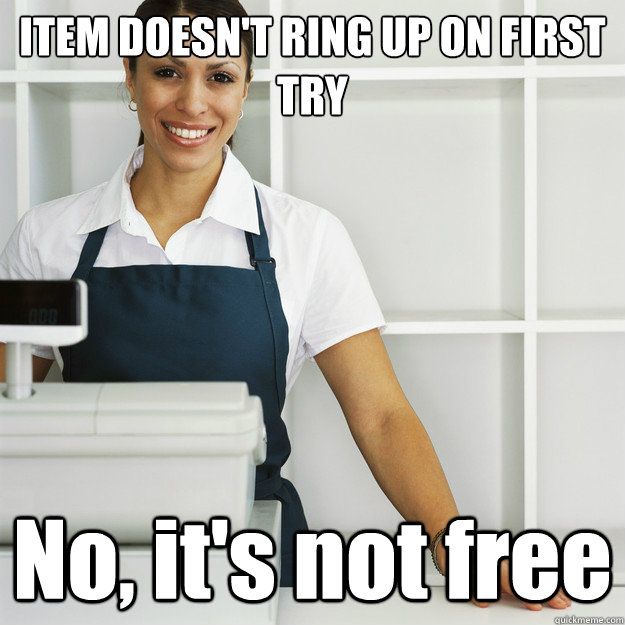 Your stomach is in knots every single Sunday night. Your walk into the office often feels like you’re trudging through cement. And, a sledgehammer seems like the only suitable way to silence your alarm clock each weekday morning—at least you’d be able to get some of that pent-up aggression and hostility out.
Your stomach is in knots every single Sunday night. Your walk into the office often feels like you’re trudging through cement. And, a sledgehammer seems like the only suitable way to silence your alarm clock each weekday morning—at least you’d be able to get some of that pent-up aggression and hostility out.
First of all, I’m sorry. Your career is a huge part of your life, and when it doesn’t leave you feeling fulfilled and satisfied, it can have a pretty big negative impact on your overall outlook and attitude. It’s hard to leave that frustration at your desk when the clock strikes five every evening.
SEARCH OPEN JOBS ON THE MUSE! See who’s hiring here, and you can even filter your search by benefits, company size, remote opportunities, and more. Then, sign up for our newsletter and we’ll deliver advice on landing the job right to you.
If you’re trying to be proactive about your situation, I’m willing to bet that you’ve read your fair share of advice about what to do when your career makes you miserable. And, I’m also willing to bet that much of that advice told you the same thing over and over again: Get out.
And, I’m also willing to bet that much of that advice told you the same thing over and over again: Get out.
It’s a well-meaning instruction, and I actually won’t even try to refute it. After all, if your position truly has you clenching your fists and grinding your teeth, it’s probably smart to start looking for something else. But, let’s face it—we don’t all have the luxury to pack up our desks and wave goodbye to our supervisors whenever the going gets a little tough.
So, if you’re anything like me, you typically get to the end of that well-intentioned advice and think, “OK, but what else?” Yes, perhaps you really are working on looking for a new gig. But, when you do eventually move on, you want to do your best to make sure it’s something you’re truly excited about. You don’t want to jump from the frying pan straight into the fire, so to speak. You’re being selective and taking your time.
That means you need to stick it out in this miserable position for at least a little while longer, and you’re desperate for any advice that helps make that process a bit easier.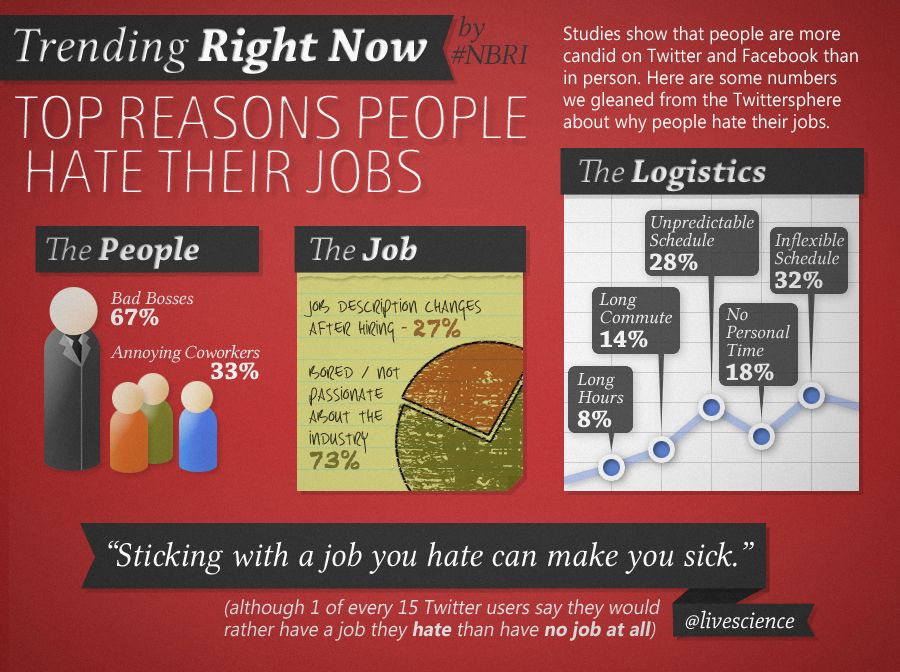
Well, look no further! Here are five things you should do when you hate your job—that don’t involve storming out of the office and collecting an unemployment check.
1. Assess Your Situation
It seems obvious, doesn’t it? But, it’s a step that’s often overlooked. We all have the tendency to get so wrapped up in how miserable we are, that we neglect to determine what exactly is causing that unhappiness.
So, it’s time to ask yourself some hard questions about your current situation. Is it your position that you hate, or is it your employer? Is there one key piece of your position that puts a sour taste in your mouth? Have you always disliked your job?
I know, this self-analysis likely isn’t the super actionable first step you were hoping for. But, these important questions will lay the groundwork for you to attack the next steps with a clear head and a narrow focus.
2. Have the Tough Conversations
Once you’ve identified what exactly is inspiring your distaste for your position, it’s time to have those difficult conversations with the powers that be. Is your workload too overwhelming? Do you feel you’re not fairly compensated for the amount of work you do? Is a member on your team not pulling his weight—contributing to your frustration? Talk these out with your supervisor to see if there are any adjustments that can be made.
Is your workload too overwhelming? Do you feel you’re not fairly compensated for the amount of work you do? Is a member on your team not pulling his weight—contributing to your frustration? Talk these out with your supervisor to see if there are any adjustments that can be made.
All too often, the employee life-cycle looks a little something like this: Mary is hired and settles into a new position. Mary’s manager assumes things are going along swimmingly. Eventually, Mary resigns and explains how miserable she’s been the entire time.
Yes, it’s your boss’ job to support, supervise, and encourage you—but, it’s definitely not his duty to read your mind.
So, if something is making you unhappy, it’s up to you to take initiative and speak up. Employers are typically willing to go the extra mile to keep top talent around. So, who knows, you and your manager could come up with some great solutions to address your problems and increase your happiness! (If you’re not sure how to approach that conversation, read this.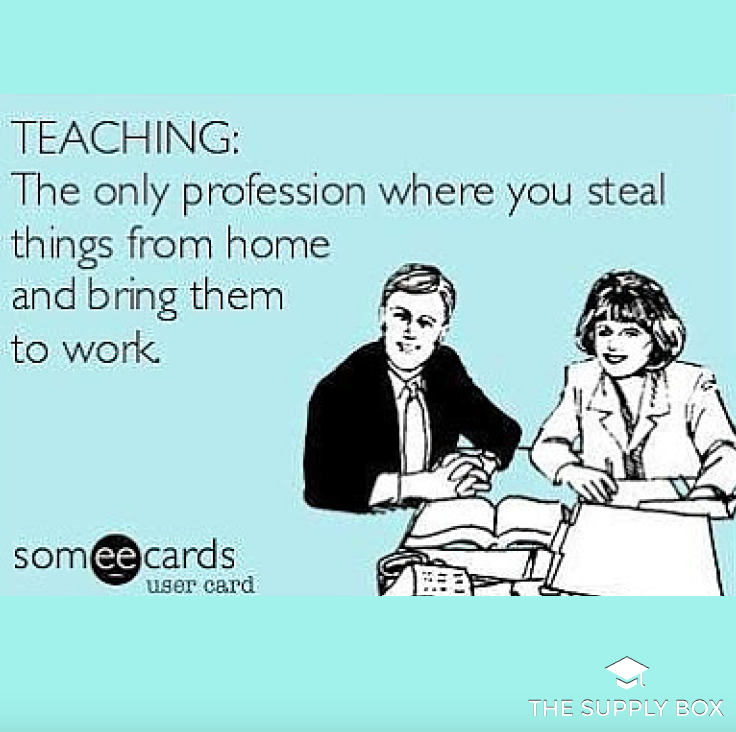 )
)
3. Switch Your Perspective
“Stay positive!” is another cliché piece of career advice you hear time and time again when you hate your current position. And, I’m trying my best to stay away from that same tired sentiment. However, I really do believe that a quick shift in your perspective could make a world of difference for you.
When you loathe what you do, it’s all too easy to just feel like you’re biding time—you’re just putting in your hours until you can finally escape from that hellhole. However, that sour, negative attitude isn’t going to make your life any easier. On the contrary, actually. It’ll make things much worse.
So, instead of looking at each workday as another time slot when you need to pay your dues and slop your way through, approach it as a chance to continue refining your skills and conquer new challenges. After all, what’s more challenging than making it through eight hours at a job you hate? Not much.
4. Vent About It
You know not to rant and rave about how much you hate your job on Facebook—that’s definitely not advisable.
But, that doesn’t mean you’re not allowed to ever air any grievances about your career. In fact, a little bit of venting can be a good thing for you—as long as you’re careful about how you do it.
So, grab a trusted friend and talk through all of your complaints and annoyances. I know, complaining doesn’t necessarily fix anything. But, you’ll likely be surprised at how much better you feel after unloading all of those feelings and frustrations.
5. Do Your Best Work
When you’re unhappy, it’s easy to fall into the trap of coasting and putting in minimal effort. I’ll admit that it can seem counterintuitive to put your all into something when you don’t even like what you’re doing. But, falling victim to mediocrity will only add fuel to your discontented fire.
So, push through and continue to turn in high-quality work. Even if you don’t necessarily enjoy what you’re doing, doing a good job with it will definitely help to lift your spirits and boost your confidence a little bit. Plus, if nothing else, at least you can go home each night feeling good about the work you put in that day. That’s something.
Plus, if nothing else, at least you can go home each night feeling good about the work you put in that day. That’s something.
Toughing it out in a job you hate is enough to push anybody to his or her breaking point. And, as much as you’d love to box up your workspace and bid adieu to your supervisor, quitting isn’t always a realistic option.
Fortunately, there are a few other things you can do to make your detested 9-to-5 at least a little more tolerable.
Give these tips a try, and let me know how it goes on Twitter!
What to do if you hate your job
Regardless of the reasons why one thought about work causes a whole gamut of negative feelings and thoughts, we can rarely drop everything and go "nowhere" in search of a better place.
The best place has yet to be found, and if you really hate your current position, then this search should not be put off.
However, until the dream job is found, we are forced to endure what we have. And we hope that the tips below will help make a difficult situation at least a little more acceptable.
And we hope that the tips below will help make a difficult situation at least a little more acceptable.
Take a good look at the situation
It seems obvious, but when we plunge headlong into strong negative experiences and feel sorry for ourselves, we often simply do not want to calm down and assess the situation rationally.
Meanwhile, understanding what exactly makes us so unhappy is critically important.
Therefore, first of all, calm down and ask yourself a few unpleasant simple questions, honest answers to which will help you understand the current situation.
-
- - Do you hate your position or your boss?
- - What exactly is it about the content of your work or the behavior of your management that makes you want to send everything to hell?
- — Have you ever enjoyed this job at all?
- - Did you like any of your work?
It's clear that banal introspection is not what you hope for in the first place. Nevertheless, the answers to these important questions will become the foundation for real steps to overcome an unenviable situation, because they will help clear your mind of unnecessary emotions and focus.
Nevertheless, the answers to these important questions will become the foundation for real steps to overcome an unenviable situation, because they will help clear your mind of unnecessary emotions and focus.
Decide to have a serious conversation
Once you understand what part of your professional life feeds your hatred of it, try discussing specific problems with those who, in your opinion, can resolve the situation.
Even if in the end it turns out that it is impossible to resolve the situation and it will not get better for you, you will bring clarity.
-
- - Do you feel like you work too hard and no one appreciates it?
- - Are you always on the edge?
- — Do you get other people's duties?
- - Do you think it's time to raise your bonus, but no one even thinks about it?
If your boss is a sane person and you are a valuable employee, it makes sense to discuss real problems, sometimes this not only clarifies the situation, but also removes contradictions.
Very often the “life cycle” of an employee looks something like this:
Masha gets a job and gets used to it for some time. The head of the machine watches this process and sees that everything is going well.
But at one fine moment, Masha, for no reason at all, writes a statement and offendedly explains (and, as a rule, behind her boss’s back) how unhappy she felt all this time.
Yes, a good leader should take care of and help his team, but he absolutely must not be able to read your mind. Seriously! Therefore, make an effort on yourself and discuss your troubles and grievances with your boss.
You still hate this job. If your boss doesn't appreciate you and doesn't care or he gets offended in return and your problems will only get worse, this will give you a reason not to delay looking for a new job.
Keep things in perspective
"Stay positive" is one of the most annoying pieces of advice in a situation of acute dissatisfaction with life's circumstances.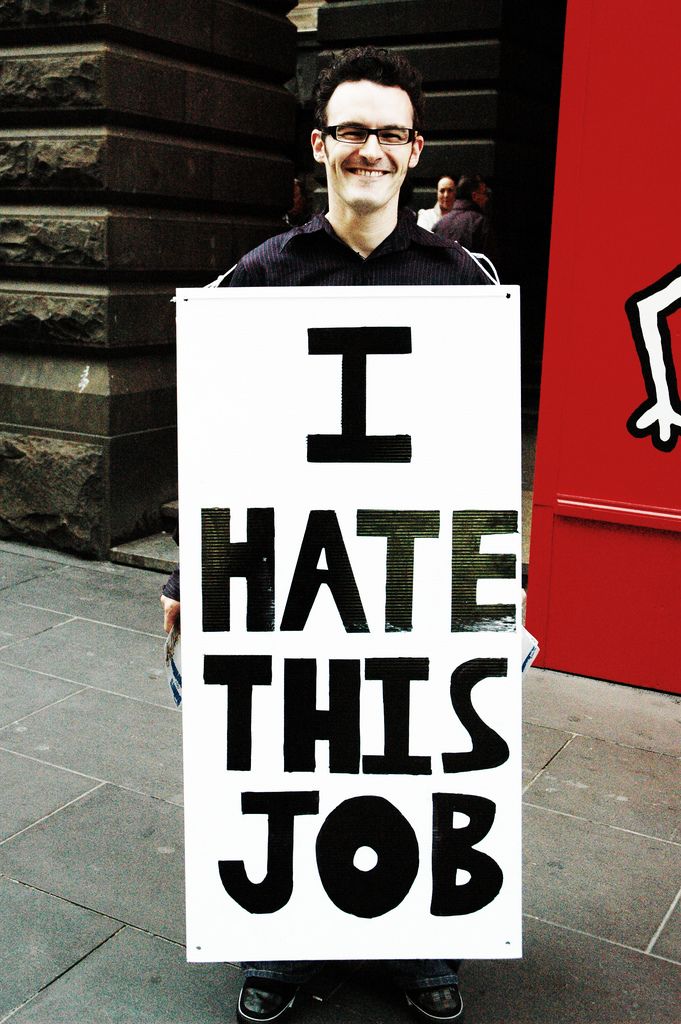 Moreover, the benefits of positive thinking are not as obvious as it was commonly believed for decades in self-esteem courses.
Moreover, the benefits of positive thinking are not as obvious as it was commonly believed for decades in self-esteem courses.
In the meantime, you definitely shouldn't drive yourself into a corner. If you hate what you're doing, it's very easy to start feeling sorry for yourself and reveling in negativity, counting down the minutes until the end of the working day, when you can finally leave this damn hole. But such an attitude to the situation, unfortunately, does not make it easier. On the contrary, it will only get worse.
Instead of seeing every working day as hard labor, try to take this whole story as a challenge and a great opportunity to improve your professional skills. Even if you hate your job because it's boring and stupid. The trick here is exactly what skills we are talking about. When else will you get a chance to exercise endurance and patience for 8 hours in a row!
Complain to your friends
Of course, no sane person would just rant about how terrible their job, bosses and colleagues are on Facebook.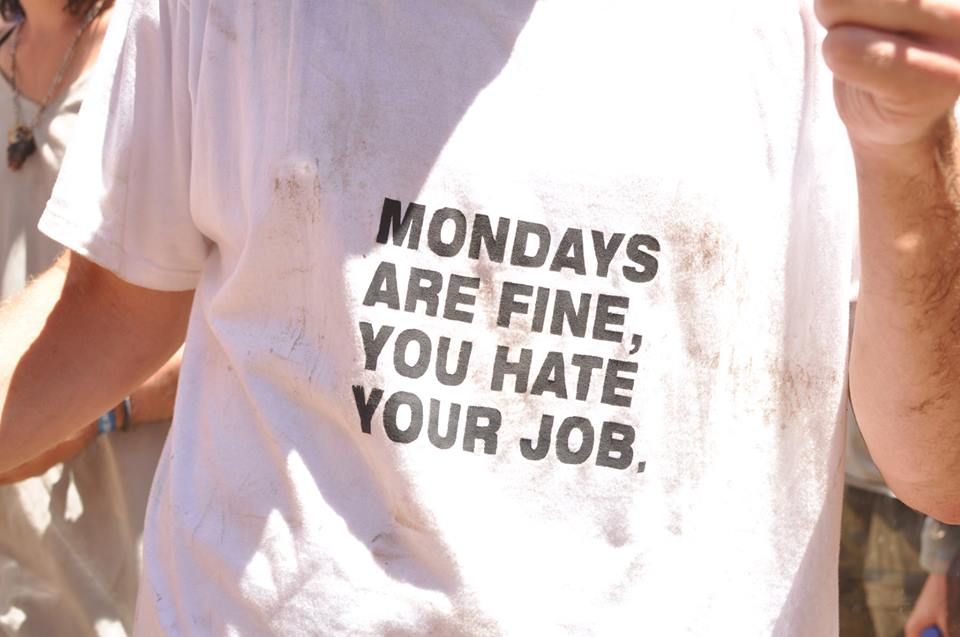 But that doesn't mean you can't let off steam and share your career challenges. Sometimes complaining about life is not so bad, the main thing is not to get carried away and not overdo it.
But that doesn't mean you can't let off steam and share your career challenges. Sometimes complaining about life is not so bad, the main thing is not to get carried away and not overdo it.
In general, take a reliable friend and talk to him about your problems (as compensation for moral damage, you can treat your friend to his favorite drink), and then, you see, you will feel better.
Do your job flawlessly
When you're unhappy, the easiest thing to do is to give up and reduce all efforts to perform your job duties to a minimum. In this regard, our last advice looks paradoxical, but only at first glance.
Depression, procrastination and sabotage will not make you happier, and a job well done is always a job well done. It lifts the mood and gives confidence. To you personally, and not to a job that you hate.
Photo: Shutterstock.com
What if you hate your job but you depend on it? Psychologist's opinion
"Afisha Daily" continues to ask psychotherapist Adriana Imzh questions about relationships with herself, other people and the world. This time we figure out what to do if you hate your job, but depend on it financially.
This time we figure out what to do if you hate your job, but depend on it financially.
The situation is a stalemate, of course. But let's try to figure it out.
Surprisingly, attitudes towards work also have a cultural connotation. In different cultures, work is treated differently: in Spain, in Israel, in the USA and in other countries, many people love their work and go to it with pleasure, rather upset if there is no work.
It has to do with goals and values.
In Russia, children are rarely explained why work is needed and why it is valuable. Why it is good to work, for example, as a baker or a carpenter. Much more often, children are oriented either simply to financial success, or to some positions associated with power or social prestige: bosses, doctors, financiers, lawyers. Therefore, adults often suffer from the fact that their expectations and goals are not realized in work. In countries where it is simply important that you work and benefit people, there are fewer people who are disappointed with work.
It is important to ask yourself: why do I hate my job? I don't like the people I communicate with? I don't like what I'm doing? Did I expect that I would lead a different lifestyle at my age? I came into this profession to do one thing, but I have to do something completely different?
And it seems important to me to start with the fact that many of us lack respect for our work. Am I doing something, is it not a criminal offense and is generally aimed at improving life (mine or other people's)? I'm fine fellow. It's already work. Maybe not the best, but valuable. At least for me. Yes, there are certainly people who earn more than me and live more interesting, richer, better, more comfortable. But my work is important. If I don't respect him, what can I expect from others?
The second problem is relationships between people. Quite often, relations in teams are not very pleasant, there are many negative assessments, competition, sluggish conflicts can smolder for years. Corporate activity and team building are most often perceived with aggression and resistance - there is no desire to recognize colleagues, imbue them and interact. But this is a very important point - people spend many hours in a team, and at least one friendly colleague with whom you can have lunch and chat near the kettle significantly relieves psychologically.
Corporate activity and team building are most often perceived with aggression and resistance - there is no desire to recognize colleagues, imbue them and interact. But this is a very important point - people spend many hours in a team, and at least one friendly colleague with whom you can have lunch and chat near the kettle significantly relieves psychologically.
Sometimes there is a lack of someone in the collectives who could be friendly to everyone, organize activities, hikes, events - just such that everyone would have fun. You can become such a person (if you want, of course).
If not at all, methods of psychological relief help: draw comics about your crazy serpentarium or write stories, publish a wall newspaper - even if only for yourself, support colleagues in battles against each other, mentally placing bets on who will win. Mental distancing from the process of unpleasant actions or communications significantly reduces the level of irritation.
When there is a discrepancy between what I do and what I would like to do, in some cases it helps to go to school - either to improve my qualifications or to get a new profession. This, firstly, gives hope for a change in the current situation, and secondly, it allows you to do something new and interesting. When in painting classes someone says: “Lord, how tired I am of working as a physics teacher!” - there will surely be someone who will sympathize and support, while in the school teacher's room it is much more likely to hear - "We are all tired, and nothing - we are silent."
This, firstly, gives hope for a change in the current situation, and secondly, it allows you to do something new and interesting. When in painting classes someone says: “Lord, how tired I am of working as a physics teacher!” - there will surely be someone who will sympathize and support, while in the school teacher's room it is much more likely to hear - "We are all tired, and nothing - we are silent."
Several times I have had to work with blue-collar workers with very good leadership and organizational skills. But the team pulled them back - and they needed my help and support so that they decided to study and move on - to more complex, well-paid and interesting positions.
It is not easy to answer the question “What are you doing there, studying? Do you think you're smarter than us?" find the correct answer or refuse to go drinking with the guys on Friday night because you have an exam tomorrow. Nevertheless, it was study that helped people at least say to themselves: “Yes, I am smarter than them and think more about my tomorrow, so it is important for me to pass this exam. ”
”
It is very important to ask for more support from friends and family. Of course, it happens that things are not very good with their work either - some of my clients said with amazement that they, in principle, did not meet people who like their work. One of the girls in the group was amazed to find that she was the only one there who did not like her work - in her childhood and among her family members, work was a horror story that required sacrifice and suffering. For her, finding people who love their work and go to it with pleasure was already a powerful incentive to start doing something to change their situation, because if an interesting job is not a utopia, but a real thing, then it makes sense to look for it.
Nevertheless, if I manage to convey to my relatives that I do not like my job, but now I have to go to it and therefore I need additional support, this can also help a lot. When another person next to you says: “I understand that you don’t like it, but you keep the whole family afloat” or “I sympathize with you, I hope the crisis in your area will end soon and you can find something new,” live becomes more fun.
